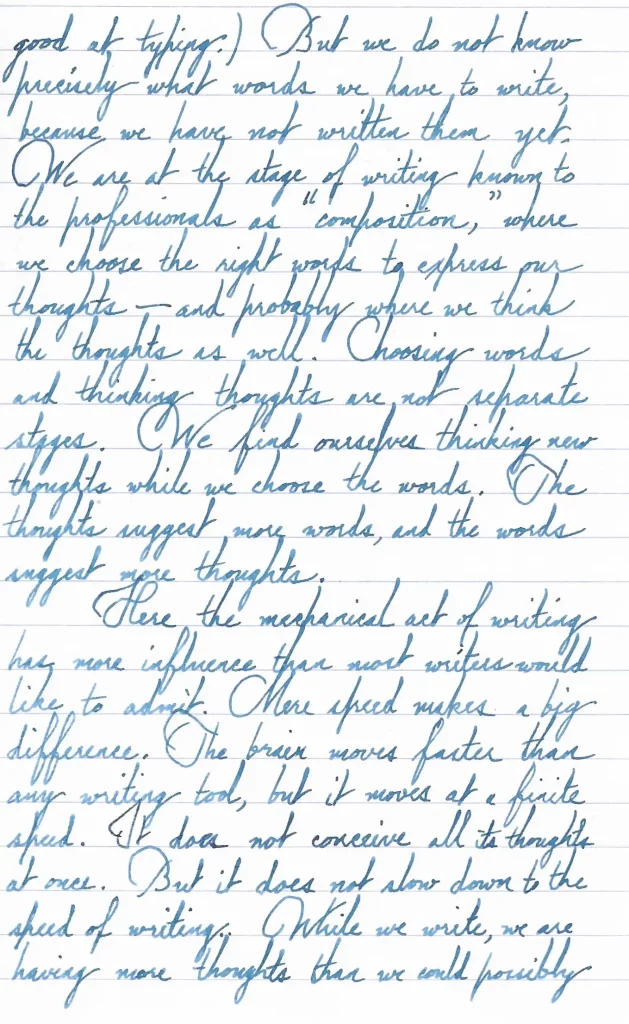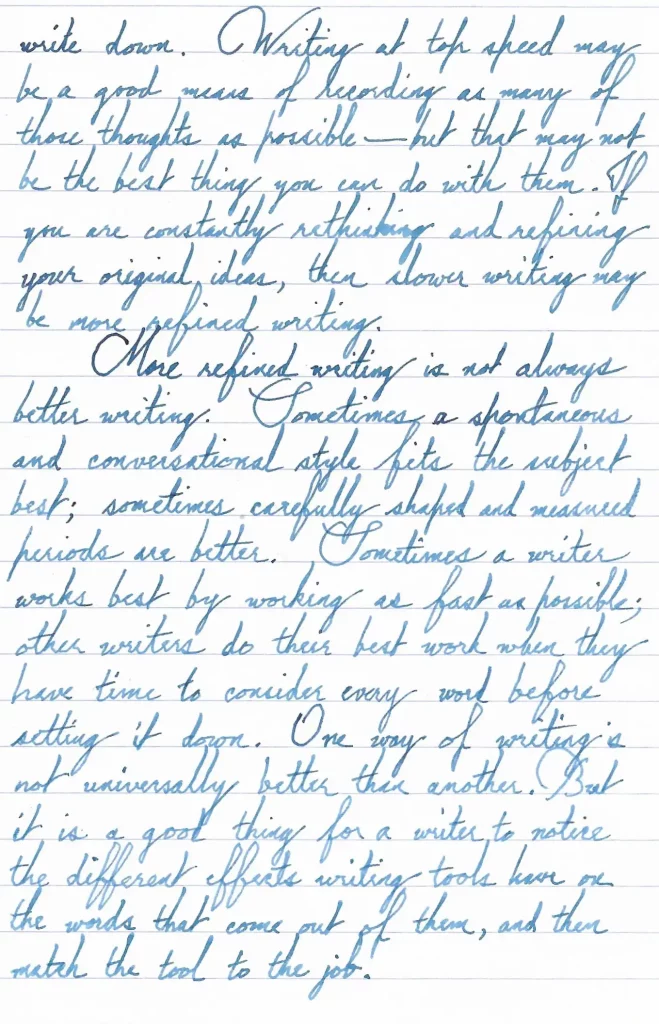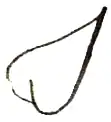


Transcribed below.
Why Write Inefficiently?
It is perfectly clear that writing with a pen is slower than writing with a keyboard. Why would anyone do it? Why take more time than necessary to get the work done?
The only possible answer is that efficiency is not always efficient: that is, the fastest way to do something is not always the best way to fulfill the purpose of doing it.
Let us say, for example, that the goal of our writing is to get a certain number of words about sparrows into a popular online bird magazine. We know the subject. Now, if we knew precisely what words we had to write, then the most efficient way to get them on line would be to type them as fast as possible on a good computer keyboard. (This assumes, of course, that we are fairly good at typing.) But we do not know precisely what words we have to write, because we have not written them yet. We are at the stage of writing known to the professionals as “composition,” where we choose the right words to express our thoughts—and probably where we think the thoughts as well. Choosing words and thinking thoughts are not separate stages. We find ourselves thinking new thoughts while we choose the words. The thoughts suggest more words, and the words suggest more thoughts.
Here the mechanical act of writing has more influence than most writers would like to admit. Mere speed makes a big difference. The brain moves faster than any writing tool, but it moves at a finite speed. It does not conceive all its thoughts at once. But it does not slow down to the speed of writing. While we write, we are having more thoughts than we could possibly write down. Writing at top speed may be a good means of recording as many of those thoughts as possible—but that may not be the best thing you can do with them. If you are constantly rethinking and refining your original ideas, then slower writing may be more refined writing.
More refined writing is not always better writing. Sometimes a spontaneous and conversational style fits the subject best; sometimes carefully shaped and measured periods are better. Sometimes a writer works best by working as fast as possible; other writers do their best work when they have time to consider every word before setting it down. One way of writing is not universally better than another. But it is a good thing for a writer to notice the different effects writing tools have on the words that come out of them, and then match the tool to the job.

Leave a Reply